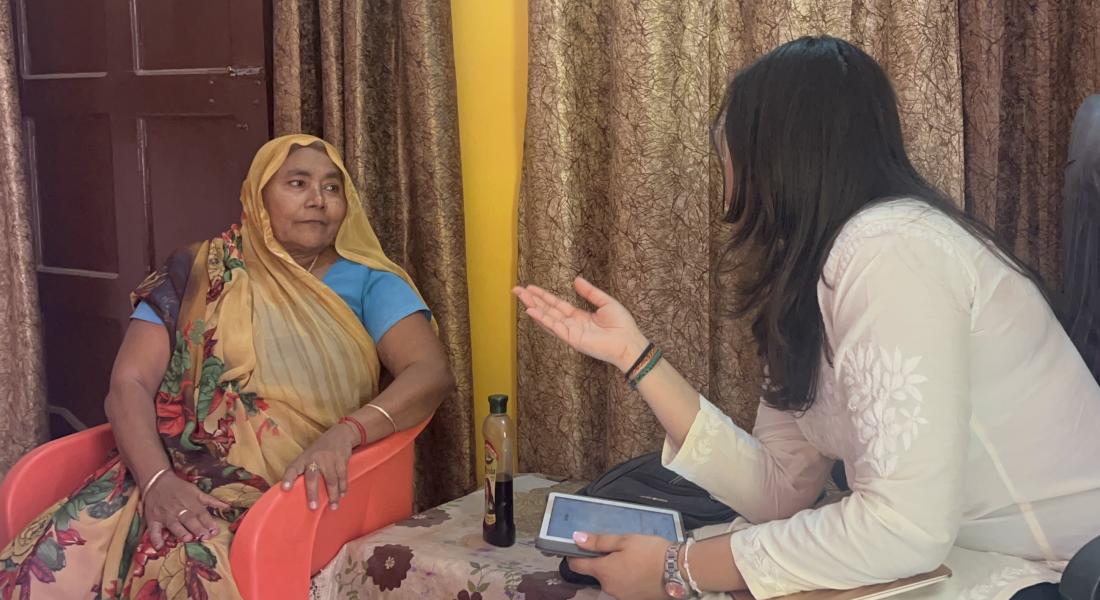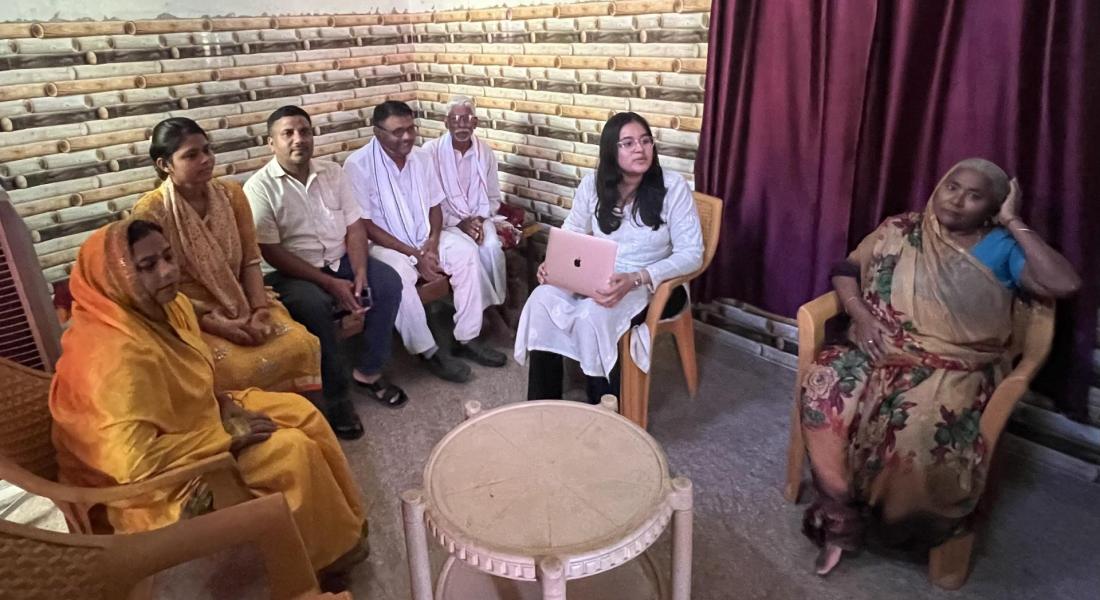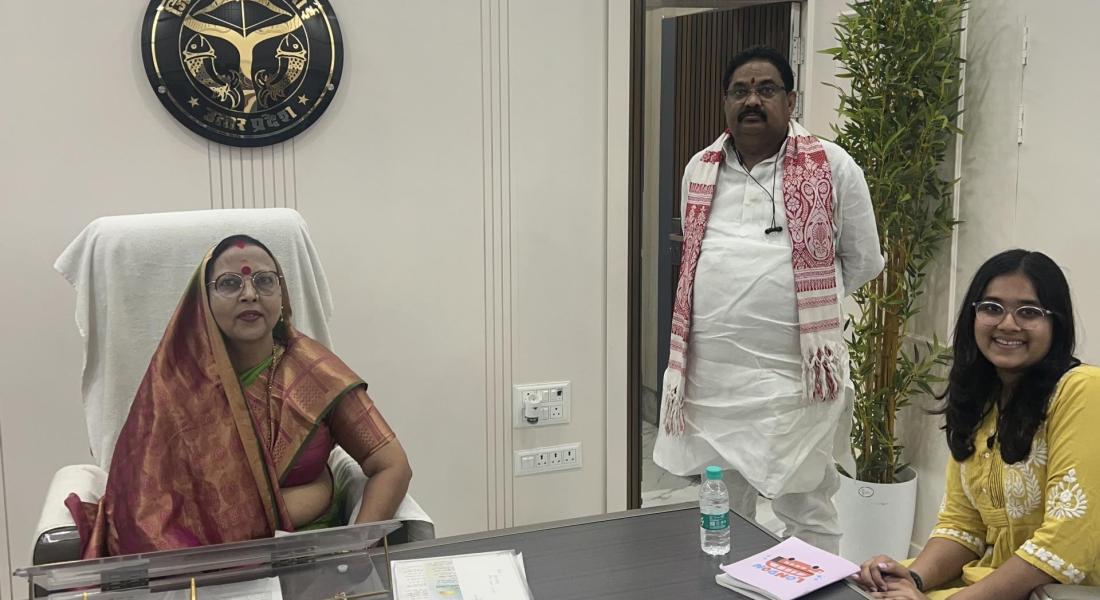Tia Mittle ’26 (global affairs/political science) was funded through a Kellogg/Kroc Undergraduate Research Grant to travel to India to work on her project, “The Indian Paradox: How Voters’ Perceptions Shape Women’s Political Trajectories.”
I’ve just completed the first phase of my fieldwork in Uttar Pradesh, and I’m writing with a few key insights and experiences from the past couple of weeks. During my time in UP, I had the opportunity to meet both a male and female sarpanch (local leader), observe their villages, and speak with local voters — both in group settings and through one-on-one conversations. One particularly striking theme that emerged was the “pradhan pati” phenomenon: while some women are elected to leadership positions, it is often their male relatives who carry out the actual responsibilities of governance. Hearing community members discuss this dynamic — and witnessing its implications on the ground — was both fascinating and at times overwhelming.
On my very first day in Hardoi, the district near Lucknow, I was fortunate to meet the Chairwoman of the Zila Panchayat (district-level governing body overseeing around 180 villages in this case). This connection, facilitated through my family in Lucknow, proved invaluable. She was incredibly welcoming, even sharing parts of our conversation on her Instagram.
Through her and another district-level representative, I was quickly connected to several sarpanches who then welcomed me into their villages. These visits gave me a much deeper understanding of local governance structures, gendered power dynamics, and the role of community perceptions in shaping political ambition. UP was definitely easier because I had access through my family and they helped me settle in, facilitate interactions and provide resources. In Kerala, I am much more independent, but I feel confident and well-prepared — thanks in large part to the foundation I’ve built during this first phase in UP.








